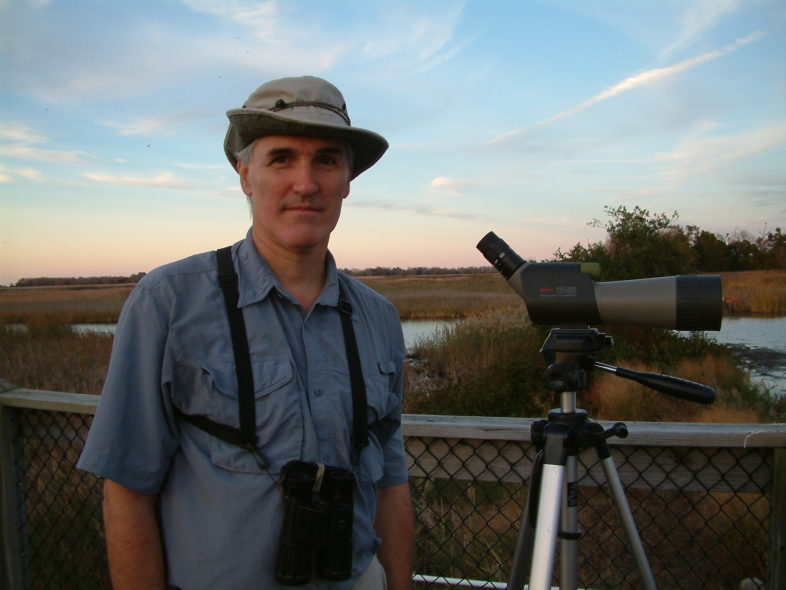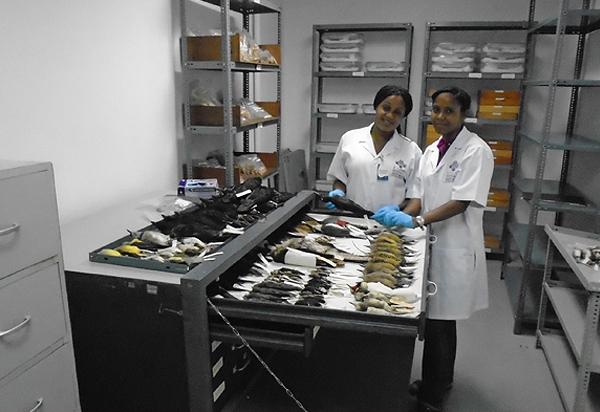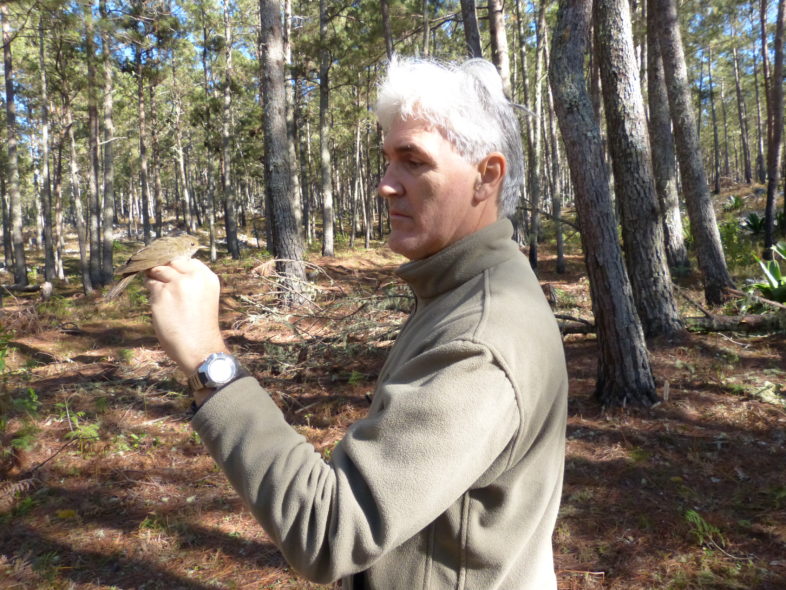
Juan Carlos Martinez-Sanchez, VCE’s Caribbean Conservation Coordinator from September 2011 to January 2017.
Imagine being plunked down on a Caribbean island, let alone one shared by the two vastly different countries of Haiti and the Dominican Republic, and being told that your assignment for the next 5+ years is to implement a conservation plan focused on Bicknell’s Thrush. Surely, that defines the very notion of an impossible job!
In September of 2011, Juan Carlos Martinez-Sanchez, better known to friends and colleagues as JC, began his tenure as VCE’s Caribbean Bird Conservation Coordinator. This brand new position, created under the aegis of the Bicknell’s Thrush International Conservation Group (IBTCG), had as its fundamental aim to implement wintering grounds actions identified in the 2010 Conservation Action Plan for Bicknell’s Thrush. Despite VCE’s nearly 20-year history of working on Hispaniola, we and our IBTCG partners knew that lasting conservation could never be achieved without a full-time human presence on the island. With 25 years of bird conservation experience in Nicaragua under his belt, Juan Carlos was clearly our man. His extensive ornithological knowledge, deep understanding of conservation issues in Third World countries, cultural sensitivity, fluency in Spanish, and proven resiliency made him a hands-down choice for the position.
Dividing his time ~50:50 between Port-au-Prince and Santo Domingo, often driving his trusty red Jeep Cherokee the tortuous 8+ hours from one city to the other, JC threw himself into the work, and then some. Although a highly skilled ornithologist (PhD from U. Washington), his job was not to count, band or otherwise study birds. JC was tasked with far more challenging goals, which revolved around building capacity of our local Haitian and Dominican partners to implement on-the-ground conservation actions. From La Visite National Park in Haiti to Loma Quita Espuela Scientific Reserve in the DR, and many places in between, JC worked tirelessly to build partnerships, train park guards, educate a cadre of young conservation professionals, and develop practical solutions to deeply complex conservation issues. Facing a multitude of daunting challenges – some legitimately qualify as insurmountable – JC never wavered for a moment in his dedication, persistence or resourcefulness!
The litany of JC’s accomplishments on Hispaniola are far too many to enumerate, but several stand out and will define his conservation legacy on the island. Foremost among them is his selfless devotion to training and equipping (often literally via used laptops, GPS units, binoculars, field guides and technological support) our partners. The strategic and associated business plan that JC spearheaded – much of it on his own personal time – for Fundación Loma Quita Espuela will guide their activities for years to come. His mentoring of six Haitian undergraduate students through their senior thesis projects both challenged and propelled each to think critically, and to understand conservation biology in new ways. JC’s influence on one of those students, Françoise Benjamin, has been especially profound, as he coached her through the steps necessary to create her own conservation non-profit – Action pour la Conservation Biologique – and helped her craft two successful grant proposals for work on endangered Black-capped Petrels. Furthering his role as a mentor, JC coordinated an historic binational training collaboration between Haiti and the DR, one which enabled Françoise to work closely with longtime VCE trainee/colleague Hodali Almonte at the DR’s Museo Nacional de Historia Natural, both in their bird collections and executing a VCE-led field monitoring project at Reserva Privada Zorzal.

Two of Juan Carlos’s “pupils”: VCE conservation partners Francoise Benjamin (left) and Hodali Almonte (right) at the Museo Natural de Historia Natural de Santo Domingo.
As Juan Carlos moves on to his next chapter in life, back in Washington, DC with his wife Loretta, whose 4-year stint with USAID in Port-au-Prince wrapped up a year ago, all of us at VCE wish him well and offer him our profound thanks for a job extraordinarily well done. The personal energy and commitment that he poured into every task and every situation were nothing short of remarkable. And, while JC, VCE and IBTCG certainly couldn’t succeed in every individual endeavor during his tenure, JC’s enduring mark on conservation in Hispaniola is evident for all to see. As JC pursues his next set of adventures, it is now up to VCE and IBTCG – thankfully, with his continued collaboration as a VCE Research Associate – to sustain and build the momentum he helped create. It won’t be easy, it never has been, but JC has laid a very solid foundation for the future.
Thank you, Juan Carlos. Bird and biodiversity conservation on Hispaniola are in far better shape for your efforts over the past 5+ years!


Thanks for everything that you did (and will no doubt continue to do!) for nature conservation on Hispaniola, JC!
What a story of courage, endurance, and skill at the grass roots of conservation in Hispaniola. I am proud that you were also an inspiration for your team. Hopefully their continued enthusiasm and knowledge will propagate in these important front lines of conservation. Thank you for being such a pioneering force for VCE.
Thanks for your work the past years. Hispaniola still smile. We are proud of men like you. Our sincere best wishes in your next step. Regards.
My name is Maria Jesus Castaño, a longtime friend of Juan Carlos. We met like 45-years ago in the natural reserve in Peregrina where Félix Rodríguez de la Fuente filmed “ El hombre y la Tierra”, a program about animals of the Iberian Península.